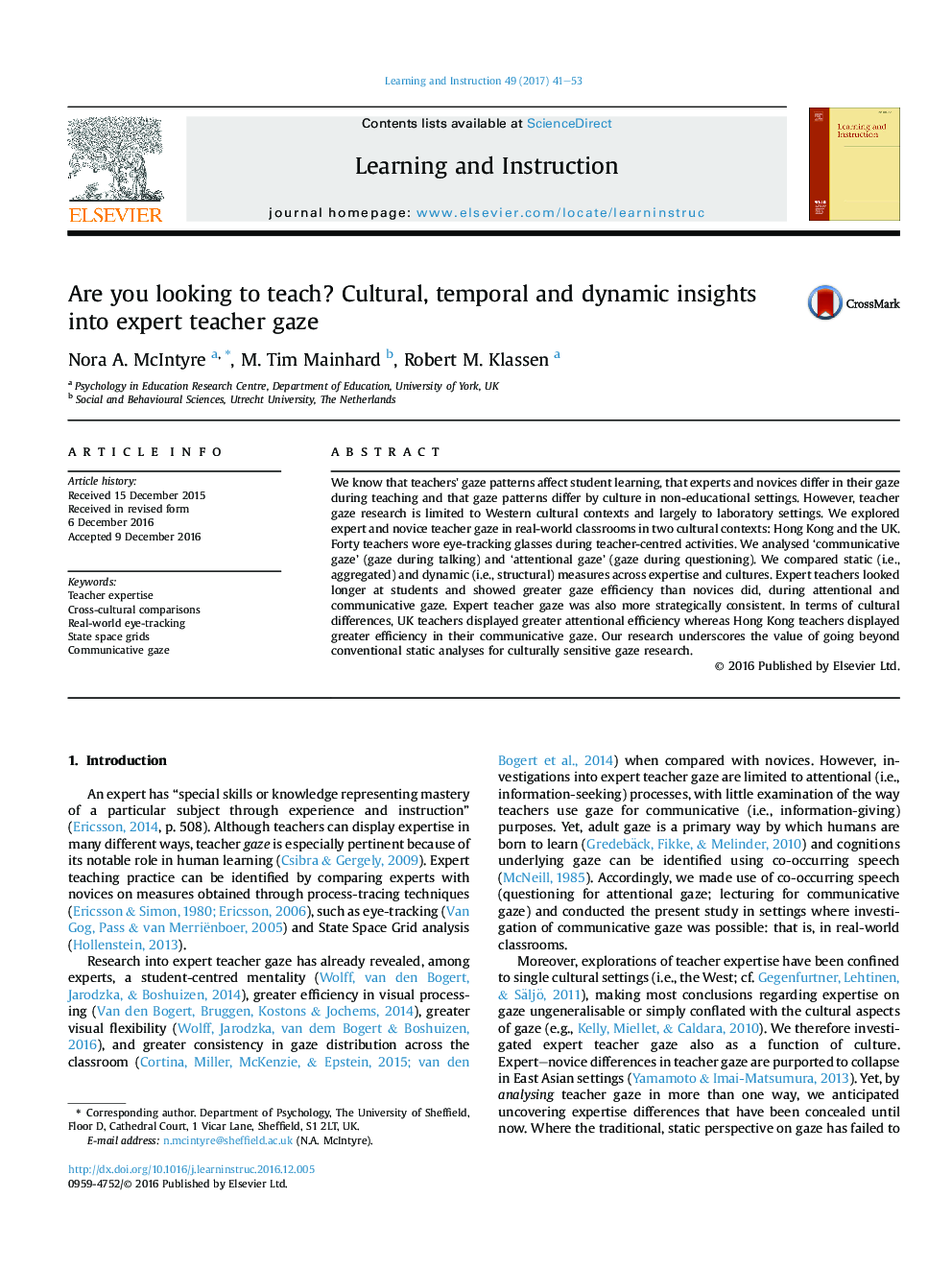| Article ID | Journal | Published Year | Pages | File Type |
|---|---|---|---|---|
| 4940251 | Learning and Instruction | 2017 | 13 Pages |
Abstract
We know that teachers' gaze patterns affect student learning, that experts and novices differ in their gaze during teaching and that gaze patterns differ by culture in non-educational settings. However, teacher gaze research is limited to Western cultural contexts and largely to laboratory settings. We explored expert and novice teacher gaze in real-world classrooms in two cultural contexts: Hong Kong and the UK. Forty teachers wore eye-tracking glasses during teacher-centred activities. We analysed 'communicative gaze' (gaze during talking) and 'attentional gaze' (gaze during questioning). We compared static (i.e., aggregated) and dynamic (i.e., structural) measures across expertise and cultures. Expert teachers looked longer at students and showed greater gaze efficiency than novices did, during attentional and communicative gaze. Expert teacher gaze was also more strategically consistent. In terms of cultural differences, UK teachers displayed greater attentional efficiency whereas Hong Kong teachers displayed greater efficiency in their communicative gaze. Our research underscores the value of going beyond conventional static analyses for culturally sensitive gaze research.
Related Topics
Social Sciences and Humanities
Psychology
Developmental and Educational Psychology
Authors
Nora A. McIntyre, M. Tim Mainhard, Robert M. Klassen,
